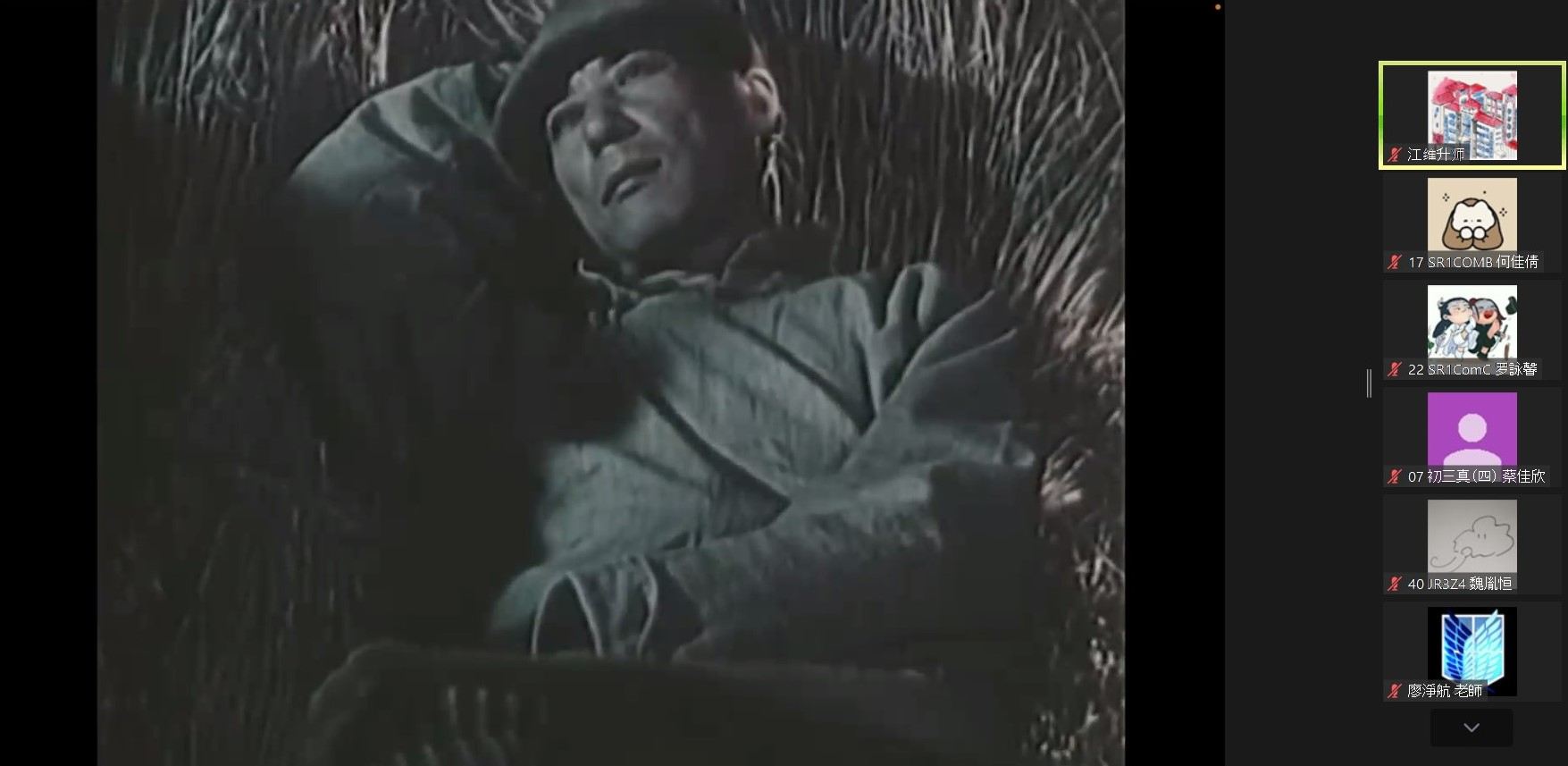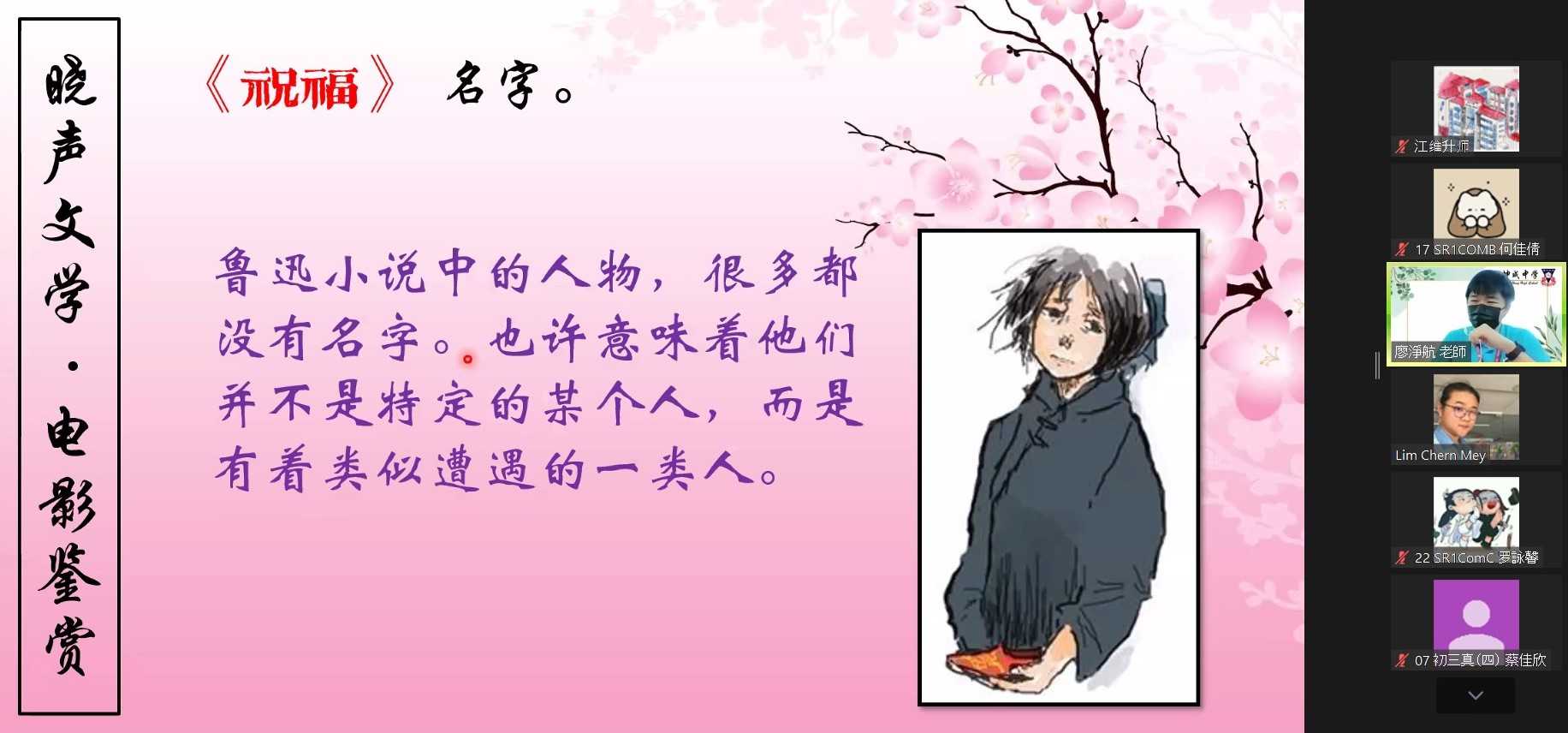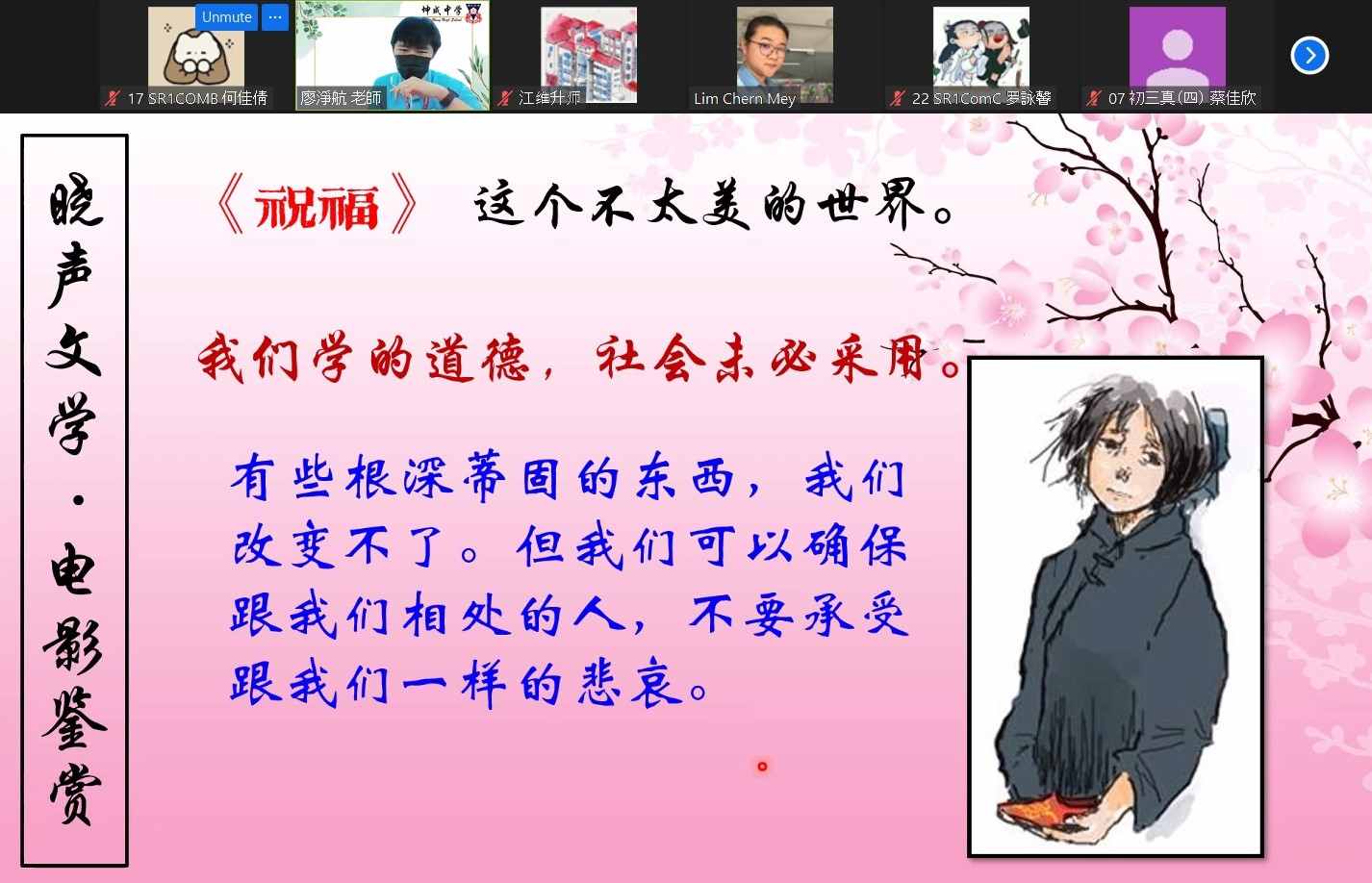Reported by:
Ho Chia Chien Sr1ComB
On 29th May 2023, Kuen Cheng High School Academic Department and the Chinese Department jointly organized a captivating literary film appreciation event showcasing the acclaimed 1956 film “The New Year’s Sacrifice”. This event aims to foster students’ interest in Chinese literature and is open to all students and teachers.
The film portrays the life of a woman who endures immense hardships, pushing her beyond the boundaries of societal moral norms. Following the screening, Teacher Liau provided an analysis of the plot, characters, and then explored the social issues prevalent in China during that era.

The New Year’s Sacrifice Film
The story focuses on Xiang Lin’s wife, a widow chosen by the author to highlight the prejudice faced by socially disadvantaged women. She suffers mentally from the pressures of primitive marriage, villagers’ naivety, and religious influences. Additionally, she experiences isolation and despair due to societal perceptions of widows in Chinese culture. The story delves into themes of marriage traditions, women’s rights, superstition, and religion.
After the one-hour film, Teacher Liau commenced by discussing the characters in the movie. He emphasized the fact that in the majority of Lu Xun’s works, numerous characters remain unnamed, suggesting their representation as archetypes rather than specific individuals. They serve as representatives of a particular group of people who share similar experiences.

Teacher Liau’s Explanation
The story intensifies its tragic impact through Xiang Lin’s wife’s fluctuating hope. During her escape, she faced contrasting situations, receiving compliments as a maid in a wealthy household, but being caught by her disapproving mother-in-law and forced back home. She remarried, and had a son, but met a tragic fate. Returning to the wealthy household, she faced discrimination at every turn, even her tragedy failing to evoke sympathy.
Furthermore, Teacher Liau emphasized the reality that society may not always adhere to the morals we learn. Following his explanations, he prompted all participants to ponder a fundamental question: “The world is filled with darkness. Should we choose to close our eyes or strive to ignite the flames of light?” In alignment with his viewpoint, he acknowledged that there are certain deeply ingrained aspects beyond our control. However, he urged everyone to focus on ensuring that the individuals we engage with do not need to experience the same level of sorrow as we have.

Teacher Liau’s Viewpoint
